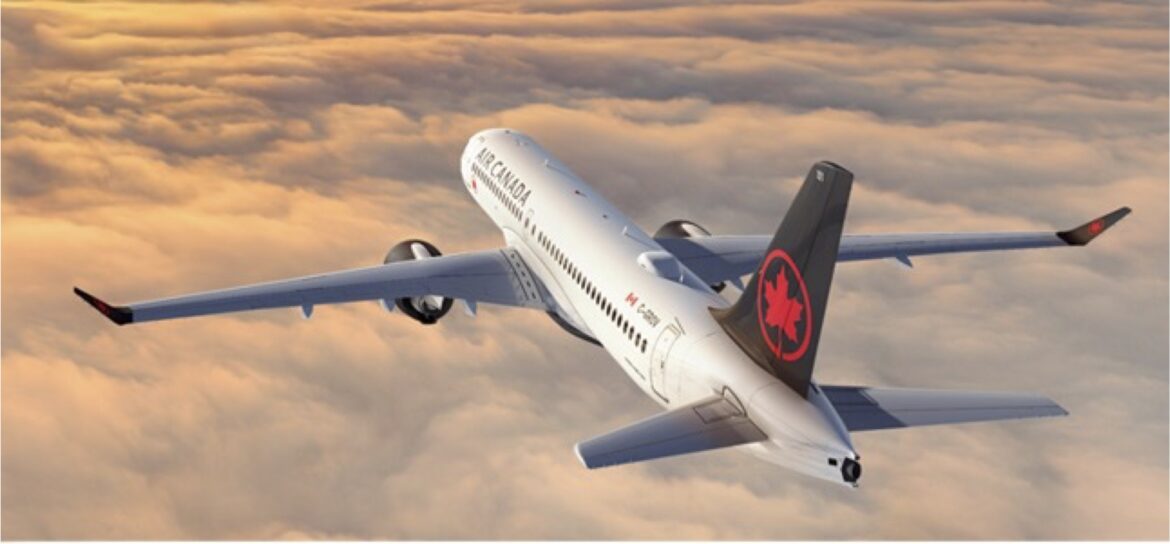Advertiser & Editorial Disclosure: The Bulkhead Seat earns an affiliate commission for anyone approved through the links below. This compensation may impact how and where links appear on this site. We work to provide the best publicly available offers to our readers. We frequently update them, but this site does not include all available offers. Opinions, reviews, analyses & recommendations are the author’s alone, and have not been reviewed, endorsed, or approved by any of these entities.
Earlier today, I wrote about how Air Canada was getting ready to resume flights after a government order ended the crippling work stoppage that grounded the airline’s entire operations for more than 24 hours. The shutdown followed a bitter contract dispute between Air Canada’s management and the Canadian Union of Public Employees (CUPE), which represents the airline’s flight attendants. After CUPE issued a strike warning, management responded with a lockout warning. This prompted the cancellation of all Air Canada and Air Canada Rouge flights on Saturday. Canada’s Minister of Jobs and Families invoked section 107 of the Canada Labour Code and compelled both parties into final binding arbitration that is overseen by the Canadian Industrial Relations Board (CIRB). The CIRB directed flight attendants to return to work, but CUPE illegally told its flight attendant members to defy this order. The airline will now look to resume flights as of tomorrow evening.
The CIRB’s decision effectively ended both CUPE’s strike and the lockout imposed by Air Canada. As a result of the subsequent disruption, roughly 240 flights scheduled for this afternoon have been cancelled (compared to the carriers’ normal daily schedule of around 700 flights). As I wrote about earlier this week, here is what the two sides said got them to this point:
Air Canada:
- Flight attendants were offered a 38% total increase over four years (including 25% in year one), plus improvements to pensions, benefits, and crew rest.
- Introduced ground pay for boarding (though at 50% of the normal hourly rate).
- It has accused CUPE of wasting 10 days of bargaining by refusing talks during the strike mandate vote.
- Air Canada also proposed binding third-party arbitration to resolve the dispute, which CUPE rejected.
- It says the union’s demands amount to “exorbitant” raises.
- This proposal would make Air Canada flight attendants the highest paid in Canada.
Canadian Union of Public Employees (CUPE):
- It says that real wage growth under the proposal would be only 17% over four years and 8% in year one (while inflation has eroded wages by 9%).
- Boarding pay is partial and excludes medical emergencies, fires, evacuations, and other safety and security ground duties.
- CUPE rejects arbitration and claims that arbitrators tend to maintain the status quo, which the union seeks to change.
- It also says it was always open to negotiations and that the airline failed to reach out during the strike vote period.
- It insists its demands are “fair” and affordable given Air Canada’s financial health.
Anthony’s Take: It looks like the flight attendants will be forced to work while the outcome of final binding arbitration remains unresolved. I’ll keep watching this and reporting back as I see updates.
(Featured Image Credit: Air Canada.)
User Generated Content Disclosure: The Bulkhead Seat encourages constructive discussions, comments, and questions. Responses are not provided by or commissioned by any bank advertisers. These responses have not been reviewed, approved, or endorsed by the bank advertiser. It is not the responsibility of the bank advertiser to respond to comments.
Advertiser & Editorial Disclosure: The Bulkhead Seat earns an affiliate commission for anyone approved through the links above This compensation may impact how and where links appear on this site. We work to provide the best publicly available offers to our readers. We frequently update them, but this site does not include all available offers. Opinions, reviews, analyses & recommendations are the author’s alone, and have not been reviewed, endorsed, or approved by any of these entities.
